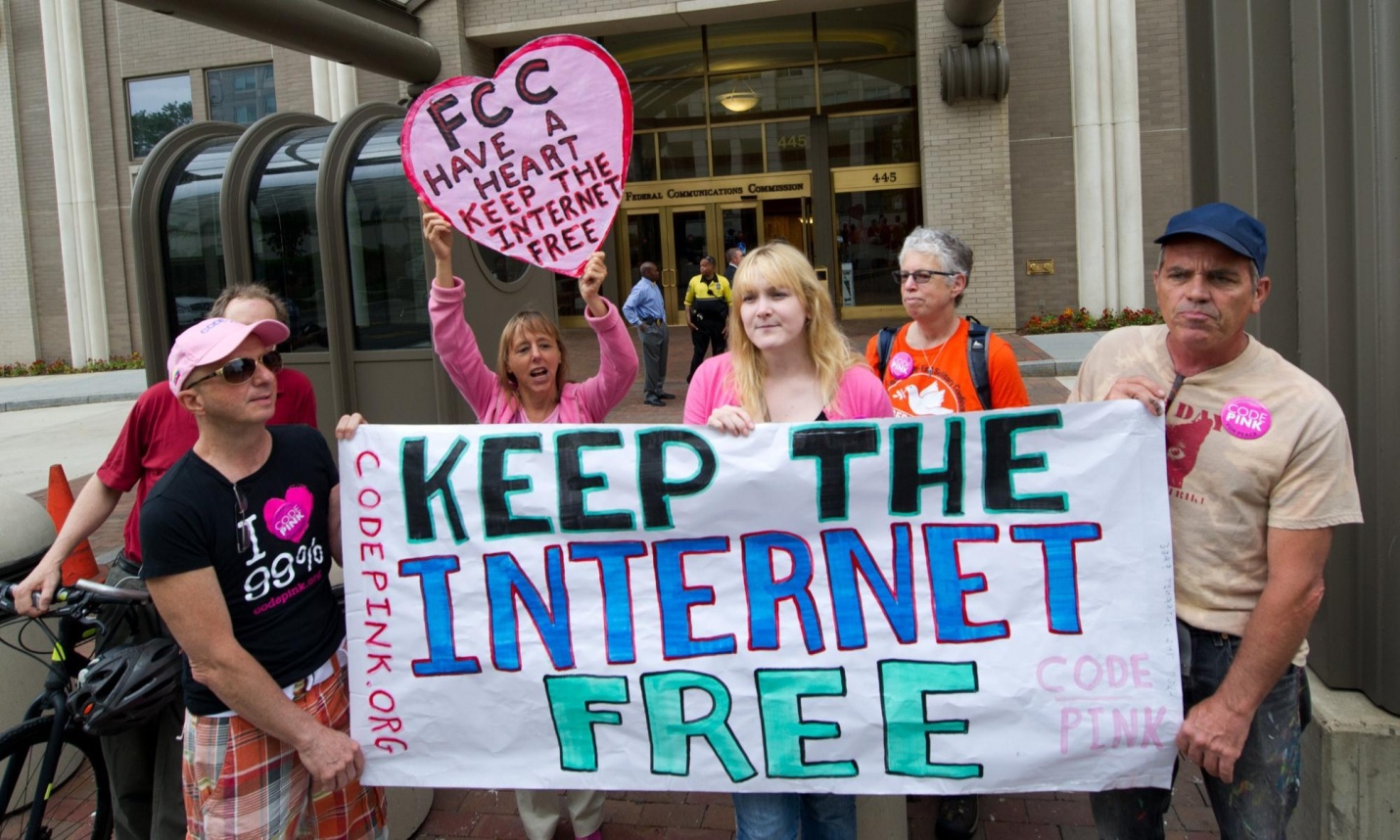Today in the United States was network legislated neutrality
This is a big win for the entire Internet.
 Today, the United States Federal Communications Commission (FCC) has approved network neutrality rules as a result of voting, which prohibit communication service providers from providing faster access to certain resources for a fee. This decision was supported by many: from the usual content producers to the founding fathers of the web .
Today, the United States Federal Communications Commission (FCC) has approved network neutrality rules as a result of voting, which prohibit communication service providers from providing faster access to certain resources for a fee. This decision was supported by many: from the usual content producers to the founding fathers of the web .According to approved regulations, US Internet providers are not allowed to slow down, for example, streaming video. They are also forbidden to create so-called fast lanes, fast channels that could provide faster access to some Internet resources for a fee. As a result of a vote, 3 to 2 Internet access service providers were identified as public lines of communication (Title II of the Communications Act of 1934), which made it possible to prescribe such rules.
But to get access to the requirements for Title II, which define the rules for telecom operators, is unlikely today. Most likely, the publication will take weeks . Several people need to blame for this, presumably Ajita Pye and Mike O'Reilly, two members of the Republican Party who not only voted against, but also try to interfere with the process. The FCC will not publish the text before receiving comments from all five representatives, and this will take time. The rules will take effect 60 days after publication in the Federal Register .
For the past two years, net neutrality has experienced problems in the United States. He was helped by massive support from Internet users and calls by President Barack Obama . This is not the ultimate victory; now opponents of network neutrality may try to undermine the authority and legitimacy of FCC decisions. With such congressmen as Ted Cruz , laws can be deprived of their powers by American regulators of communication services.
')
The principle of net neutrality or net neutrality determines that any Internet traffic must be processed with the same priority regardless of its nature and origin. Supporters say that if network neutrality is not fixed at the legislative level, there are various scenarios when tariffs of Internet access service providers charge an additional fee for full access to individual sites - what is today considered to be a free norm. For example, full access to YouTube or any other similar site may be a paid option in addition to the basic package. Also, without net neutrality, privacy, freedom and the opportunity for fair competition are violated. Net neutrality is supported by dozens of organizations from many countries and several influential personalities, for example, web inventor Tim Berners-Lee . The Network Neutrality Act is already a reality in the European Union.
Source: https://habr.com/ru/post/355804/
All Articles